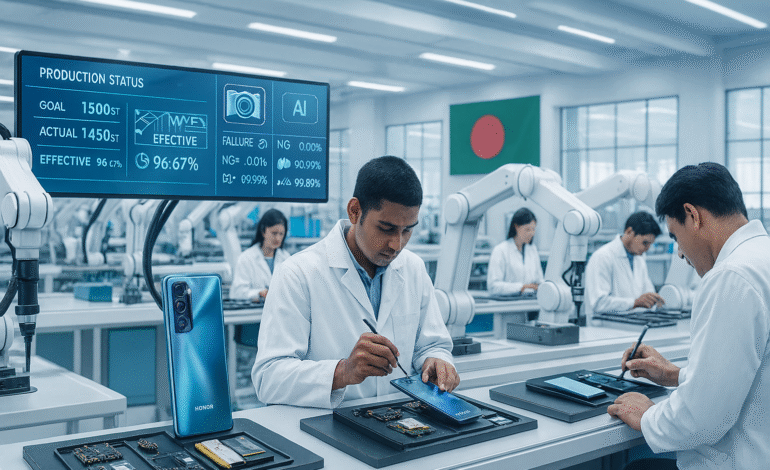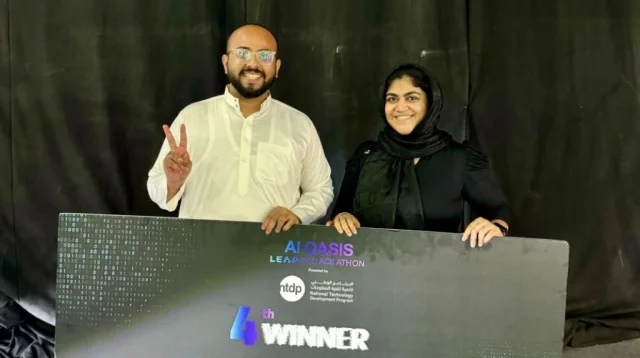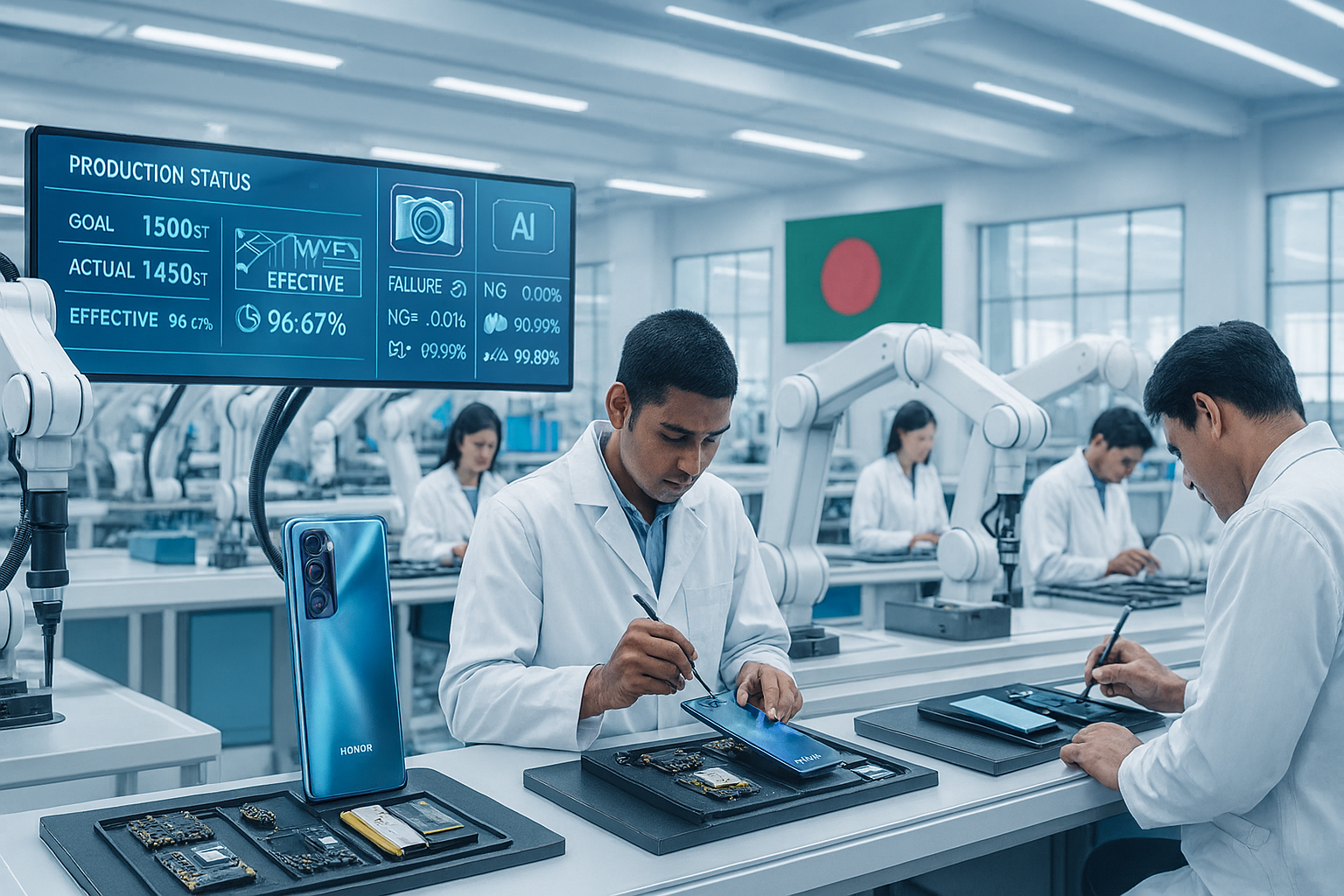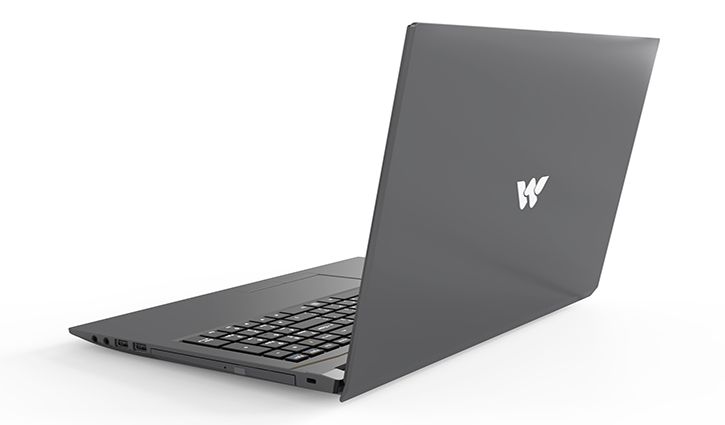Honor Starts Local Manufacturing in Bangladesh: A Game-Changer for AI Devices and Tech Ecosystem

Honor Starts Local Manufacturing in Bangladesh: A Game-Changer for AI Devices and Tech Ecosystem
Global AI-device brand HONOR has announced a major milestone in Bangladesh as it will begin local manufacturing through a new factory in Smart Hi-Tech Park, Kaliakair, in partnership with Smart Technologies (BD) Ltd. This move is expected to reshape the smartphone market, boost local technological capacity, and bring “Made in Bangladesh” AI devices to a wider audience.
A Historic Partnership: Honor and Smart Technologies
On November 16, 2025, George Zhao, President of HONOR South East Asia, and Md Jahirul Islam, Managing Director of Smart Technologies (BD), signed a landmark agreement.
The factory will be based in Smart Hi-Tech Park, Kaliakair, a key industrial zone in Bangladesh.
In a public statement, George Zhao said that Bangladesh is “an exciting and rapidly growing market” and that local production will bring HONOR’s AI innovation closer to Bangladeshi consumers.
Md Jahirul Islam emphasized that the plant will help strengthen local expertise, create jobs, and contribute to the country’s long-term technological development.
Why This Matters for Bangladesh’s Tech Industry
1. Boosting Local Manufacturing Capability
HONOR’s decision to manufacture locally helps deepen Bangladesh’s electronics manufacturing base. Until now, many smartphones sold in Bangladesh were imported or merely assembled in smaller facilities. This new factory marks a shift toward higher-value production.
2. Promoting “Made in Bangladesh” Innovation
Devices made in the new facility will carry the “Made in Bangladesh” label. HONOR’s AI-driven products will be built with local labor, supporting technology transfer, and creating a more resilient domestic supply chain.
3. Job Creation and Skills Development
The manufacturing plant will create employment opportunities, especially in Kaliakair, where skilled workers will be trained in AI device assembly, quality control, and hardware testing. As Smart Technologies’ MD noted, this collaboration helps build world-class products locally.
4. Affordable Access to AI Devices
Local manufacturing can reduce costs by minimizing import duties and shipping costs. This may translate into more affordable HONOR smartphones with advanced AI features, making them more accessible to Bangladeshi consumers.
Strategic Fit with HONOR’s Global Vision
HONOR’s global strategy, known as the “Alpha Plan,” emphasizes AI integration, human-centric design, and long-term value creation.
The local plant aligns with this vision, bringing high-tech devices closer to users in Bangladesh.
According to HONOR’s ESG report, the company is committed to sustainable production, high quality, and advanced technologies and a local facility supports that by avoiding long, carbon-intensive shipping routes.
AI Devices and Local Adoption: What Could Be Produced
HONOR’s Bangladesh plant is expected to produce “AI devices.” While the company has not publicly detailed specific models for this factory, several clues point to potential first products:
In July 2025, HONOR launched the AI-powered X6c smartphone in Bangladesh, featuring an AI button, AI eraser, and AI translation.
In May 2025, HONOR introduced the 400 series, marketed as “AI G.O.A.T.” for mobile photography, which includes a 200MP AI camera and intelligent imaging capabilities.
It’s plausible that future devices produced in the local plant could include these models or newer, AI-focused devices designed for both domestic and export markets.
Economic Impact: Beyond Phones
Strengthening Bangladesh’s Electronics Industry
HONOR’s factory adds momentum to Bangladesh’s broader electronics manufacturing sector, which already includes local production by brands and OEMs. As more high-tech brands manufacture locally, Bangladesh can diversify beyond traditional sectors like garments and agriculture.
Export Potential
Once production scales, HONOR could export locally manufactured devices to other markets in South Asia or beyond, using Bangladesh as a manufacturing hub. This could elevate Bangladesh’s role in the regional electronics supply chain.
Technology Transfer
Working with HONOR helps local engineers and workers gain experience in AI, precision manufacturing, and quality assurance, skills that are transferable to other tech sectors and can accelerate innovation in Bangladesh over the long term.
Challenges and Considerations
While the deal is promising, there are several challenges to watch:
1. Initial Investment
Building a high-tech AI device plant requires heavy up-front capital. Whether Smart Technologies and HONOR can scale efficiently will be crucial.
2. Supply Chain Dependencies
Critical components (chips, sensors) may still need to be imported, which could affect costs and lead times.
3. Skills Gap
Producing advanced AI-enabled smartphones requires highly skilled labor. Training and retaining talent will be a key concern.
4. Regulatory Environment
Effective regulation, incentives, and support from the government will be needed to make local manufacturing competitive.
5. Market Price Sensitivity
Bangladeshi consumers are price-conscious. HONOR must balance “premium AI” with affordability to succeed in local sales.
Why This Move Is Bigger Than Bangladesh
HONOR’s decision to build locally in Bangladesh is not just a win for Bangladesh — it’s part of a broader global trend:
Decentralized Manufacturing: As brands move away from relying solely on China, they look to emerging economies like Bangladesh as new manufacturing bases.
AI Everywhere: The local plant underscores how AI-equipped devices are not just niche products but they are increasingly mainstream, even in developing markets.
Sustainable Local Production: Building devices locally helps reduce carbon footprint and fosters eco-friendly supply chains — a priority in global ESG strategies.
Growing Talent Pipeline: Local factories help build tech ecosystems and human capital in regions like South Asia, aligning with global development goals.
What Comes Next? A Look Forward
Here are some key developments to watch over the next 12–24 months:
Factory Commissioning: When will the Smart Hi-Tech Park plant become operational? Reports suggest manufacturing could start by late 2025.
First “Made in Bangladesh” HONOR Devices: Which models will roll off the line first? Likely candidates include the X6c or parts of the 400 series.
Local Job Creation: How many jobs will be created, and how many will be tech-related vs assembly?
Affordability & Pricing: Will locally produced devices be cheaper than imported ones, and by how much?
Export Strategy: Will HONOR export Bangladeshi-made devices to other South Asian or global markets?
Sustainability Metrics: How will the factory measure its environmental impact, and will Honor track its ESG outcomes locally?
A Turning Point for Bangladesh Tech
HONOR’s decision to begin manufacturing in Bangladesh is more than just setting up a factory, it’s a signal that the country’s tech ecosystem is maturing. With AI-focused devices, this move could:
Lower costs for advanced smartphones, create quality jobs, build local capabilities in innovation.
If successful, this partnership could mark a major milestone in Bangladesh’s transformation into a regional hub for smart, AI-powered devices and a blueprint for other global tech companies eyeing the country.






